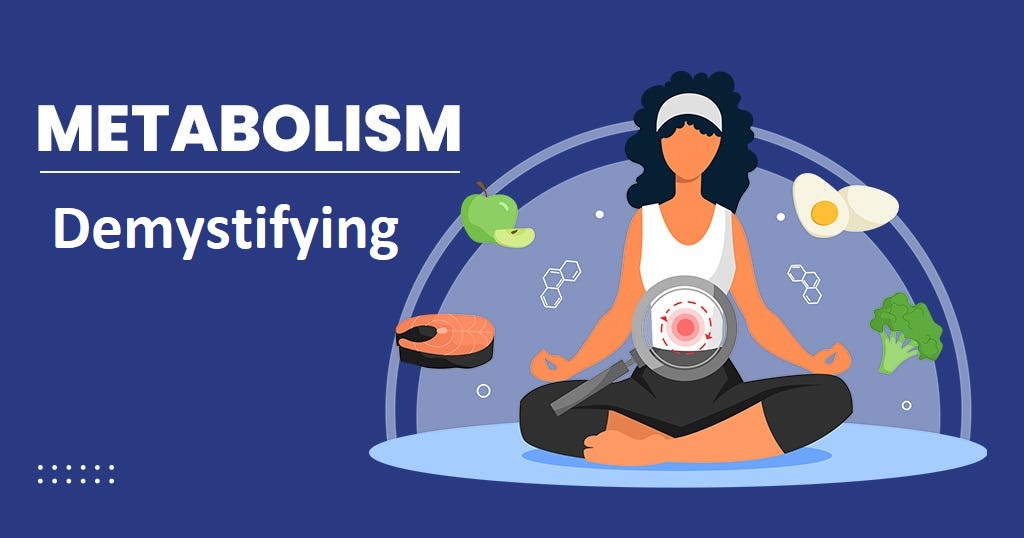Metabolism, often likened to the body’s engine, plays a central role in regulating energy production, growth, and overall health. But How Does Metabolism Work? This question lies at the heart of our understanding of the human body’s intricate processes. In this article, we will unravel the mystery of metabolism, exploring how it works and the factors that influence it. Understanding this fundamental process is essential for maintaining overall health and achieving specific wellness goals.
Top of Form
Bottom of Form
Understanding Metabolism
Metabolism encompasses all the chemical processes that occur within cells to maintain life. These processes involve converting the food we eat into energy, building and repairing tissues, and eliminating waste products. Metabolism is a continuous, dynamic process that occurs in every cell of the body.
Two Primary Components of Metabolism
Metabolism can be divided into two primary components:
Anabolism: This is the building phase of metabolism, where smaller molecules are used to create larger and more complex molecules. Anabolic processes are responsible for growth, tissue repair, and the synthesis of substances like proteins and nucleic acids.
Catabolism: Catabolic processes involve the breakdown of complex molecules into simpler ones, releasing energy in the process. Catabolism provides the energy needed for various physiological functions, including muscle contraction and the maintenance of body temperature.
Key Metabolic Reactions
Several critical metabolic reactions occur within the body:
Glycolysis: The initial step of breaking down carbohydrates (glucose) into smaller molecules, producing a small amount of energy (ATP) in the process.
Krebs Cycle (Citric Acid Cycle): This cycle occurs within the mitochondria and further breaks down the products of glycolysis, generating additional ATP and other molecules used in energy production.
Oxidative Phosphorylation: The final step of energy production, which takes place in the mitochondria. It involves transferring electrons through a series of protein complexes, ultimately generating a large amount of ATP.
Factors Influencing Metabolism
Metabolism is influenced by various factors, including:
Age: Metabolic rate tends to decrease with age, primarily due to a decrease in muscle mass and changes in hormonal levels.
Body Composition: Muscle tissue requires more energy to maintain than fat tissue, so individuals with a higher proportion of muscle tend to have a faster metabolism.
Hormones: Thyroid hormones, insulin, and adrenaline play significant roles in regulating metabolism. An imbalance in these hormones can impact metabolic rate.
Diet and Nutrition: The thermic effect of food (TEF) refers to the energy expended during digestion, absorption, and storage of nutrients. Consuming a diet rich in protein can temporarily boost metabolism due to the higher TEF.
Physical Activity: Exercise, especially resistance training, can increase muscle mass and boost metabolism by increasing the number of calories burned at rest.
Genetics: Some individuals are genetically predisposed to have faster or slower metabolisms, although genetics can be modified by lifestyle factors.
Stress and Sleep: Chronic stress and poor sleep can disrupt hormonal balance, potentially affecting metabolism.
Metabolism Myths
Several myths and misconceptions surround metabolism, including the belief that certain foods or supplements can significantly boost metabolic rate overnight. While factors like exercise and nutrition can influence metabolism, they do so gradually and within physiological limits. Rapid and substantial changes in metabolism are uncommon.
Metabolism is a dynamic and complex process that underpins nearly every aspect of human physiology. Understanding how metabolism works and the factors that influence it is essential for maintaining overall health and achieving specific wellness goals. While metabolism is influenced by genetics and age, lifestyle choices, such as diet and exercise, play a significant role in optimizing metabolic rate. By adopting a balanced and healthy lifestyle, individuals can support their metabolism and promote overall well-being.

